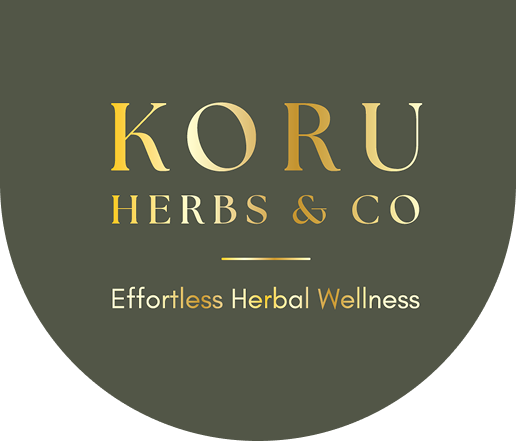
The Body Remembers: Why Digestive & Nervous System Health Are Connected
Your Gut and Nervous System Are in Constant Conversation
The connection between the brain and gut isn’t metaphorical—it’s biological. Your digestive system is lined with over 400 million neurons, more than your spinal cord, and it’s in constant communication with the brain through the vagus nerve. [1]
This network is called the gut-brain axis, and it shapes everything from mood to immunity to digestion. So when your nervous system is overwhelmed, your digestion doesn’t just keep going. It slows down. It redirects energy. It waits for safety.
Research shows that chronic stress can lead to increased inflammation in the gut, decreased enzyme production, and changes in microbiota balance. [2][3] It can even weaken the protective lining of the digestive tract, making it harder to absorb nutrients—even when your diet is solid. The body isn’t malfunctioning—it’s protecting you. But long-term, that protective pattern becomes its own kind of imbalance.
You may notice this through physical symptoms—bloating, irregularity, acid, sluggishness—or through emotional patterns like loss of appetite, nausea during stress, or a gut that feels like it’s always “off.” These aren’t just digestion problems. They’re signals. The nervous system and the gut are speaking. The question is: are we listening?

Healing Happens When You Support Both Systems
If your digestion feels off, but your labs look “normal,” or your food changes haven’t helped, it’s time to shift the focus. Not to a stricter protocol—but to your nervous system.
Your body needs more than ingredients. It needs signals of safety.
When you bring in herbs that calm and nourish both the gut and the nervous system, you give your body a chance to reset—not through force, but through reminders.
This is why blends like GROUND and ROOT – Gut Balance are layered with intention.
They include herbs that regulate digestive fire, ease tension, restore the gut lining, and help the nervous system stop bracing. Think:
-
Chamomile and lemon balm to help turn off the stress response [4]
-
Ginger, fennel, and marshmallow root to ease discomfort and support steady function
-
Licorice and schisandra to build resilience where depletion has taken over [5]
You don’t need to feel better to begin. You just need a system that meets you where you are.
And herbs, when used daily and consistently, do just that.
Even something as simple as brewing a calming cup, placing your hand on your belly, and checking in—not to fix, but to listen—starts the process. That pause creates space. And space is where healing begins.
"Your body needs more than ingredients. It needs signals of safety." |
You’re not stuck because something’s wrong with you.
You’re stuck because your body has been carrying more than it was designed to hold—without enough support.
But support is available. It's simple. It's steady.
And it works better when you stop chasing perfection and start tending to what your body has been trying to say.
Regulation creates rhythm.
Rhythm creates trust.
And trust is what makes the gut—and the rest of you—start to heal.

SOURCES
[1] Carabotti et al. (2015), Annals of Gastroenterology
[2] Vanuytsel et al. (2014), Gut
[3] Foster & Neufeld (2013), Trends in Neurosciences
[4] Amsterdam et al. (2009), Chamomile & Anxiety Study
[5] Panossian & Wikman (2010), Adaptogen Mechanisms
